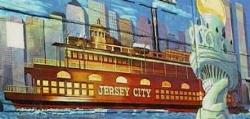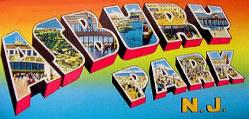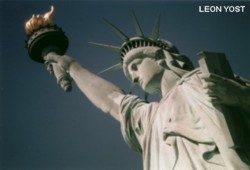 |  |  |
|
| ||
 |  |  |
 |  |  |
|
| ||
 |  |  |
|
|
By Harriet Phillips Eaton
Published 1899
This Web version, edited by GET NJ
COPYRIGHT 2002
There was much opposition to Company A by the officers of the old Hudson Brigade, of which there was not left a single uniformed and equipped company. Through the efforts of Mr. Rogers a committee was appointed to draw up a law to conform with the National Guard Act passed by Congress. General Runyon, Colonel Plume and Colonel Rogers were the committee. After much opposition the Legislature passed the law and Governor Randolph signed the act March 9th, 1869. Other companies were formed Company B, by Captian Bullard; Company C, by Captains McLaughlin and Murphy; Company D, by Lieutenant J. J. Toffey; Company E, by Captain Henry G. Shaw; Company F, by Captain John B. Randolph. General orders were issued creating the six companies into the 4th Regiment, N. J. Rifle Corps, with Colonel William E. Rogers, Lieutenant Colonel C. G. Van Reyper, Major William B. Shafer. By a general order issued by Adjutant General W. S. Stryker on April 14th, 1869, these six companies and Company G of the Second Regiment, N. J. State Militia, were assigned to the Fourth Regiment, First Brigade.
Colonel Rogers was appointed Inspector General on the Staff of General Runyon, and for more than a year was constantly occupied in securing compliance throughout the state with the National Guard Act. The regiment gave an inaugural concert and hop at Kepler's Hall (now the Academy of Music) on the evening of May 12th, 1869 -- "one of the most brilliant events in the history of the city up to that time." For twenty-five years their armory was at 25 and 27 Newark avenue. The new armory in Bergen avenue was completed in February, 1895. The regiment has served honorably on several occasions in suppressing riots, both at home and in other states; it has joined in numerous parades, and has acted as Guard of Honor at the funerals of several notables. At the State Camp its members have nearly all qualified as marksmen at the state rifle ranges. One of its early officers, Lieutenant Colonel Shaw, was the author of the competitive system of rifle shooting as practiced in the United States. He was instrumental in starting the Creedmoor Range, which was known for years as the American Wimbledon, but has since been surpassed by the New Jersey State Range in the variety of ranges for different shooting.
|
|
|
|
 Your Ancestors' Story |
 Bruce Springsteen's Jersey Shore Rock Haven! |

|
UrbanTimes.com |